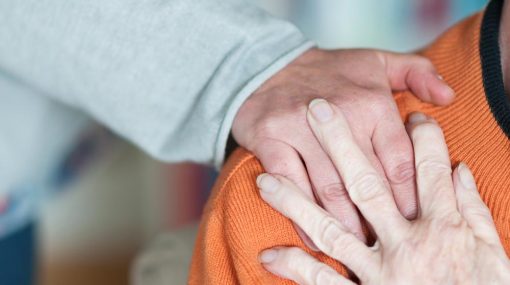5 Ways You Can Ask a Friend for Help During Methadone Maintenance
Methadone maintenance is a much easier process––especially early on––if you have a friend to help you through it. Below are 5 ways you can ask a friend for help during methadone maintenance. To find treatment centers that will cater to your needs, call 800-994-1867Who Answers? now.
1. “Can You Drive Me There?”
According to the National Institute on Drug Abuse, “Properly prescribed, methadone is not intoxicating or sedating and does not interfere with ordinary activities like driving a car.”
However, in the early days of your treatment, you and your doctor may still be trying to find the right dosage so that your withdrawal symptoms are reduced but you do not experience any sedation. Even if you do feel like you can drive yourself, having someone else go with you can make the process less lonely and burdensome, especially because you have to do it every day.
2. “Can You Monitor My Moods?”

Your friend can watch out for signs of depression in order to help you avoid relapse.
When you have a friend living with you during your treatment, it can help to have them monitor your moods and to make sure you aren’t starting to show signs of depression. This can be extremely serious if it occurs during your treatment phase, and sometimes, those who experience it are led back to relapse. Therefore, having someone who knows you and makes sure you aren’t beginning to show signs of depression can keep you safe during treatment.
3. “Can You Make Dinner?”
Asking someone to possibly give you food that will keep for a few days such as frozen meals is perfectly understandable while you are getting the hang of your treatment program. You may feel too tired to cook for yourself, and it can help to know that you have food to eat in your home after you come back from treatment.
4. “Can You Visit Me?”
If you decide to stay in a residential facility, it can make a huge difference to have your friend come to support you. It can begin to feel isolating when you are away from your loved ones, but having a chance to see those friends who care about you while still in treatment will boost your spirits and remind you that they are supporting your recovery all the way.
5. “Can You Remove Any Triggers from My Home?”
While you are in treatment, it is important to learn what your triggers are and to discuss them with those you care about. According to the NIDA, physical objects “become associated with the drug experience and can trigger uncontrollable cravings if the individual is later exposed to these cues.”
It can be very beneficial for you to know that these objects have been placed out of sight and out of mind for when you return to your home from treatment.
Do You Want to Find Reliable Methadone Maintenance?
Call 800-994-1867Who Answers? to find rehab centers that will help you begin your journey of recovery. We can also answer your questions about insurance, payment plans, and specific treatment options.
